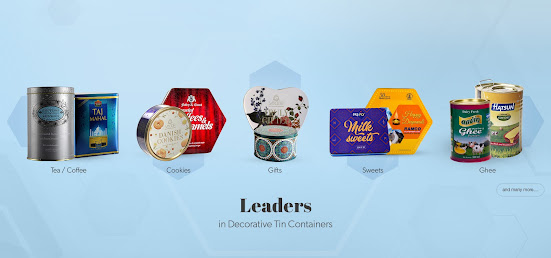Understanding Metal Food Packaging Containers: Benefits and Applications
Metal food packaging containers are a staple in the food industry, known for their ability to preserve and protect food from various environmental factors. These containers, made primarily of steel or aluminum, provide numerous benefits, from enhancing shelf life to ensuring food safety. With growing demand for sustainable and durable packaging solutions, metal food packaging containers continue to evolve, meeting both consumer needs and environmental standards.
Benefits of Metal Food Packaging Containers
Extended Shelf Life
One of the primary benefits of metal food packaging tin containers is their ability to extend the shelf life of perishable foods. Metals create a barrier that blocks out light, oxygen, and moisture, all of which can lead to food spoilage. This airtight environment preserves flavors, textures, and nutritional value for extended periods.Food Safety
Metal containers provide a highly effective shield against contaminants. Unlike some other packaging materials, metal is not easily permeable, preventing bacteria and toxins from entering the container. This protection ensures the food remains safe for consumption, which is crucial in maintaining food quality.Heat Resistance and Temperature Control
Metal containers can withstand high temperatures, making them ideal for processes like sterilization and canning. These properties allow foods to be stored safely even after heat processing. Additionally, metals have good thermal conductivity, helping to maintain the right internal temperature of the food.Recyclability and Sustainability
Sustainability is a major factor in modern packaging. Metal food packaging containers, particularly those made from aluminum and steel, are fully recyclable. This means that after the container has been used, it can be recycled and repurposed without loss of quality, supporting a circular economy and reducing waste.Durability and Protection
Metal packaging is resilient and highly durable. Its strength protects the contents from physical damage during transportation and handling, ensuring the food inside reaches the consumer in optimal condition. The sturdiness of metal food packaging containers also reduces the chances of leaks and punctures.
Applications of Metal Food Packaging Containers
Canned Goods
One of the most common uses for metal containers is in canned foods. From vegetables and soups to meats and sauces, metal containers provide an airtight environment that preserves food without requiring refrigeration. Canned goods benefit from the long-lasting protection that metal packaging offers.Beverage Packaging
Metal packaging containers, especially aluminum cans, are widely used for beverages such as soft drinks, juices, and energy drinks. The metal barrier prevents light and air from impacting the drink, helping to maintain carbonation and freshness.Ready-to-Eat Meals and Processed Foods
The growing trend of ready-to-eat meals has led to an increased demand for metal food packaging containers. Meals that are pre-cooked and require a long shelf life benefit from metal packaging’s ability to endure sterilization and maintain food quality.Pet Food
Metal containers are commonly used in pet food packaging, especially for wet food products. The airtight seal ensures freshness and quality, while the durability of metal prevents spills and contamination, which is essential for the health and safety of pets.Baby Food and Nutritional Supplements
Baby food and nutritional supplements require high standards of safety and preservation. Metal food packaging containers meet these needs by providing a sterile environment that safeguards the product from potential contaminants, which is critical for maintaining product integrity.
Advances in Metal Food Packaging Containers
With advances in technology, metal packaging is becoming lighter and more adaptable while retaining its protective properties. Innovations include thinner yet stronger container walls, improved recycling processes, and coatings that enhance the shelf life and safety of food. These advancements allow metal packaging to stay relevant as a preferred choice in the food industry, balancing durability and eco-friendliness.
Conclusion
Metal food packaging containers offer numerous benefits, from extending shelf life to protecting against contamination. Their applications are diverse, spanning from canned foods to baby food and beverages, making metal containers a versatile solution.
With a growing emphasis on sustainability and food safety, metal food packaging containers continue to be an ideal choice for the food industry. The strength, durability, and recyclability of these containers make them a reliable option for both manufacturers and consumers alike.



Comments
Post a Comment